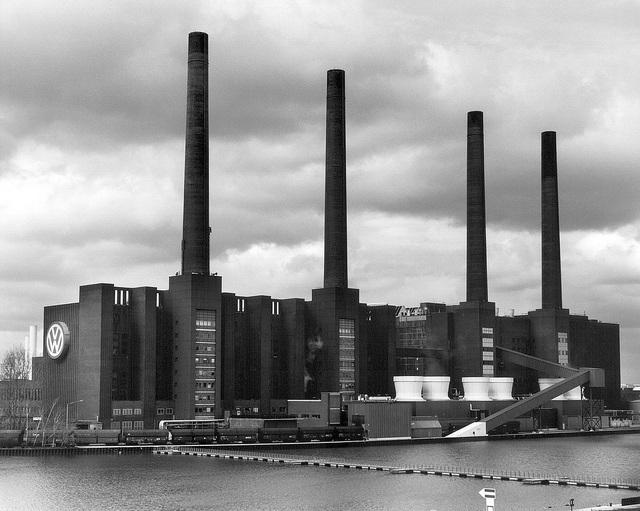
For over a year, Volkswagen has been rocked by an emissions cheating scandal that resulted in the company agreeing to pay a multibillion-dollar settlement. Germany’s largest automaker says it is trying to move on from its dodgy “defeat device” past with a renewed commitment to greener cars and electric vehicles. But it faces a long road ahead as it seeks to earn back the trust of both consumers and regulators.
But coping with a past that is largely unflattering may prove too much for the company as it struggles to move forward. Promises of more transparency and honesty from the $250 billion automaker ring even more hollow considering Volkswagen’s recent decision to dismiss the historian who spent years documenting the impact of its Nazi past.
As the New York Times reported last week, Volkswagen suddenly fired its company historian, Manfred Grieger. Grieger documented Volkswagen’s history for over 20 years and revealed much about how the company, founded in 1937 by the Nazis’ trade union organization, grew before and during World War II. At a time when many German companies were having difficulty coming to terms with their ties to the Nazi regime, Volkswagen gave Grieger the green light to write an exhaustive 1996 study chronicling the company’s use of forced labor throughout World War II.
Both Grieger and Volkswagen won plaudits for revealing the sordid ways in which the automaker contributed to the Nazi war effort with weapons and military equipment made in its Wolfsburg factory, which is still in operation today.
The historian was open about the company’s business practices, and Volkswagen allowed him unfettered access to its archives. Accounts of forced labor, children taken away from their parents and housed in horrific conditions, the SS guard presence on factory shop floors, along with descriptions of the regular beatings and shootings, were all meticulously documented. In the wake of that study, Volkswagen launched a fund in 1998 to compensate living Nazi-era workers, though critics pointed out that the individual sums were a relative pittance.
Two years ago, Grieger authored another study reviewing the World War II operations of Audi, now a subsidiary of Volkswagen. That study received scant attention until the German business publication Wirtschafts Woche published summaries of Grieger’s work in late August. The optics of that study, coupled with the recent attention spotlighting forced labor in today’s global supply chains, only piled more onto Volkswagen’s public relations woes. The publicity over Audi’s wartime history was apparently overwhelming for the company; hence Grieger was sent packing.
According to the Times, Volkswagen denied that Grieger’s contract was allowed to terminate because of the fallout over his most recent research. Nevertheless, the optics could not be worse.
And to add insult to a very injured company, Volkswagen has other human rights stories that threaten to further harm its reputation. Last year in Brazil, 12 former Volkswagen employees filed a class-action lawsuit against the company, claiming executives allowed them to be detained, blacklisted and tortured during the country’s 1964-1985 military dictatorship. The company promised to investigate the charges and issue a report on its findings. But over a year later, Volkswagen remains silent on these allegations.
If Volkswagen is ever going to rebound from this difficult year, it must press forward with more transparency and a frank discussion of its past and present challenges -- instead of appearing to sweep any mention of these incidents under the rug.
Image credit: Penn State University Library/Flickr

Leon Kaye has written for 3p since 2010 and become executive editor in 2018. His previous work includes writing for the Guardian as well as other online and print publications. In addition, he's worked in sales executive roles within technology and financial research companies, as well as for a public relations firm, for which he consulted with one of the globe’s leading sustainability initiatives. Currently living in Central California, he’s traveled to 70-plus countries and has lived and worked in South Korea, the United Arab Emirates and Uruguay.
Leon’s an alum of Fresno State, the University of Maryland, Baltimore County and the University of Southern California's Marshall Business School. He enjoys traveling abroad as well as exploring California’s Central Coast and the Sierra Nevadas.














